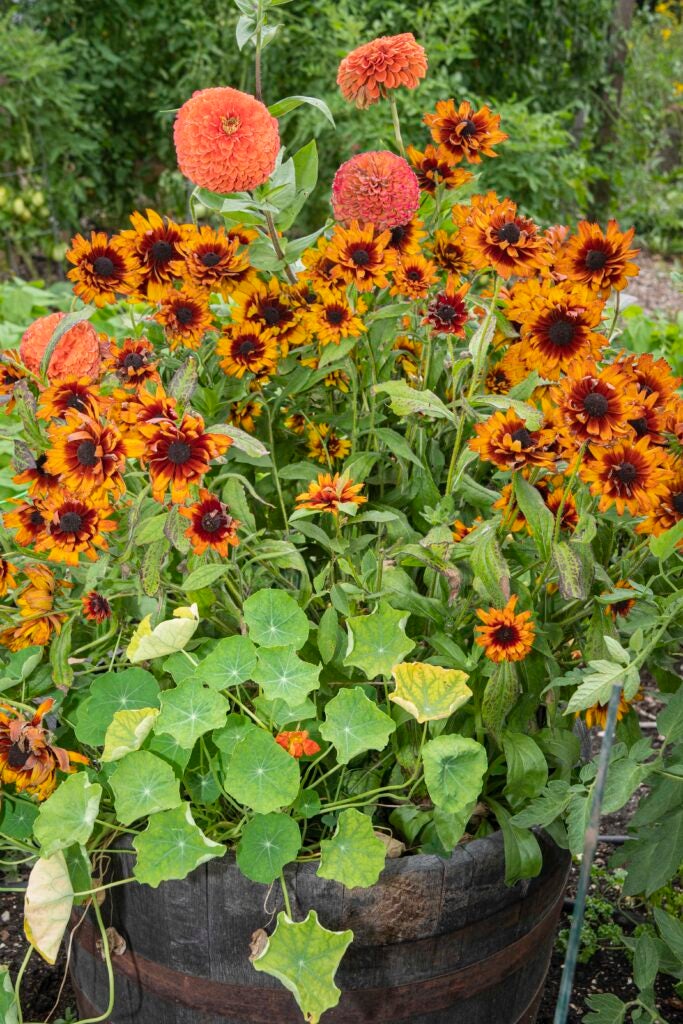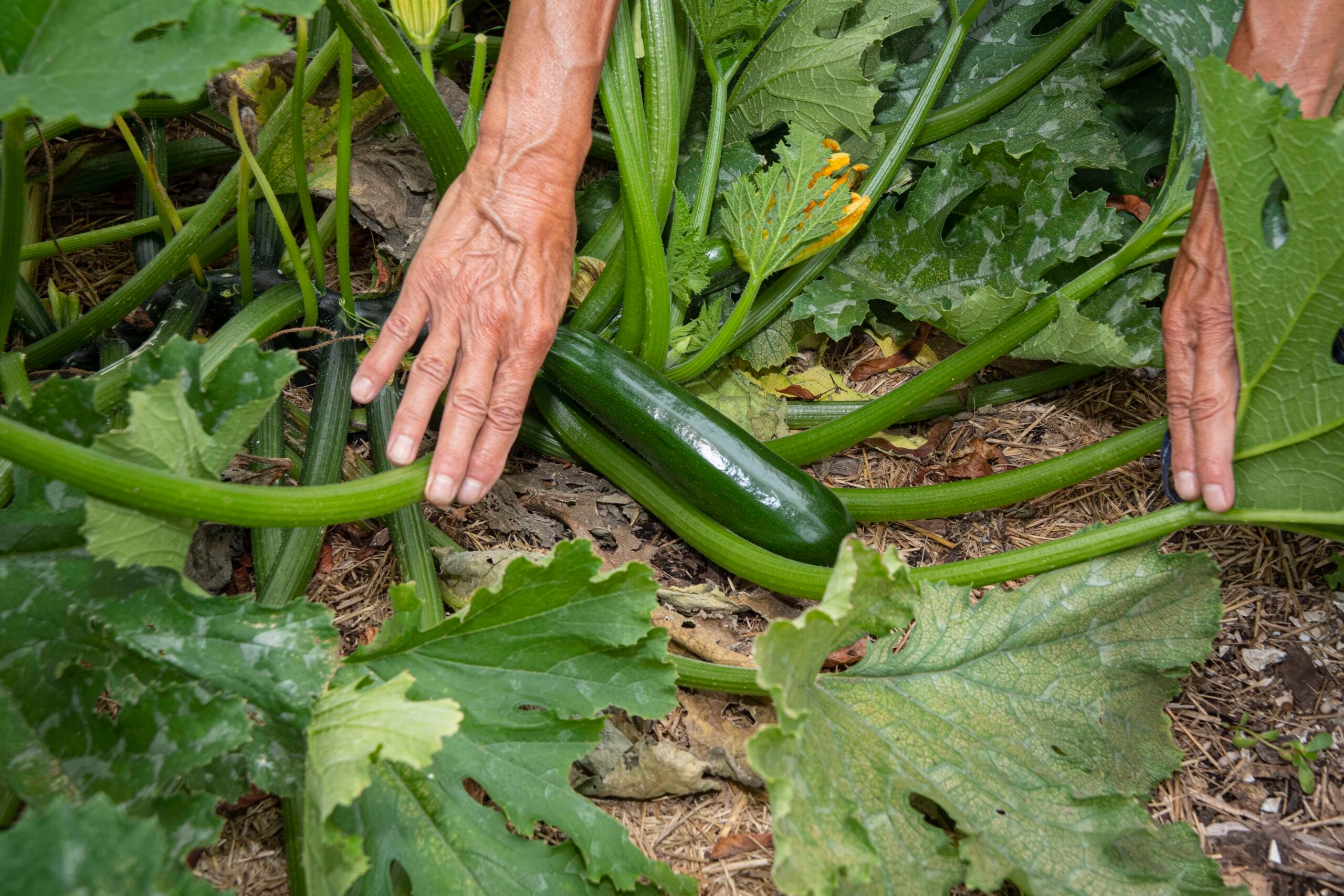KINGSTON, R.I. – August 1, 2022 – For backyard gardeners, mild droughts and water ban restrictions common during the summer months can be a cause for concern. Kate Venturini Hardesty, a program administrator and educator with the University of Rhode Island’s Cooperative Extension, offers some tips for backyard gardeners who are feeling the heat.
Let your lawn rest.
“Your lawn is on summer vacation,” she said. “Lawns are meant to go dormant in July and August. Many turf types are perennial species, so they rely on a break, much like the herbaceous perennials in our gardens. When we don’t allow them to rest, they’re weaker, just like you and I without a good night’s sleep. Refraining from watering the lawn saves a tremendous amount of water.” While this may mean that your lawn is brown instead of a vibrant green, it will be beneficial for its overall health.
Don’t mow your lawn too low.
Mowing your lawn too far down will also have a negative impact on it. You don’t want to be the golf course of your neighborhood – the taller your grass is, the healthier it will be.
“Mow high,” she said. “The higher your mower is set, the deeper the roots are able to go underground to access soil moisture.” Deeper turfgrass roots equal stronger, healthier turf.

Water your crops and gardens as early in the day as possible.
When it comes to watering your plants, the earlier you can do it the better.
“Don’t water any time but the morning,” she explained. “It gives the plants some time to actually absorb the water before it evaporates.” If you water at noon, you’ll lose a bunch of water to evaporation. If you water in the evening after the sun has set, you run the risk of causing fungal issues for your plants, which is not good for their health. Watering in the morning allows for moisture to be soaked up in the root zone before the sun is too high.
Mulch your garden beds.
This is particularly important for vegetable gardens. Mulch locks in moisture in the soil and discourages evaporation.
“Making sure that the ground is covered by some type of mulch that’ll hold the moisture is one of the best things you can do for your vegetable plants. Most are annuals from other parts of the world and need supplemental water every day in the heat of summer,” she said, “so anything you can do to conserve it is good.”
Know what plants are best for your garden.
When it comes to designing and planning your gardens and landscaping, it’s critical that you know which plants are the best suited for your space. Plants that are native to your area will generally do best because they evolved and are able to adapt to the way your local climate is changing on both the micro and macro levels.
“If you look around the landscape, it’s the plants from Asia and Europe that don’t do as well,” she said, “because they’re like, ‘where am I?’”
The types of plants that are best to plant vary from garden to garden based on a variety of factors, including sun exposure, solid health and drainage. Before you plant, do your research.
“A simple site assessment exercise can help you gather information about available sunlight and water, wind exposure, drainage and soil health, and more,” she said. “The more information you have, the easier it is to choose plants that can tolerate the climate on your site. It’s a front end investment that pays off in the long run.”
Venturini Hardesty said that, on average, New England tends to get about 45 inches of rain per year. If the average rain per week is about one inch, that leaves about seven weeks without rain – which happens to be almost the full length of the months of July and August.
The shifts that climate change will bring to backyard gardeners – and crop growing and planting as a whole – will need to be dealt with on a regional level, not in individual backyards, she explained. However, it’s never too early to prepare.
“In some ways, a drought exacerbates a condition that already exists during the summer,” she said, “so adapting to a drought by expecting it is going to be one of the best defenses we have because I don’t think it’s going away.”
Gardeners are encouraged to utilize the resources offered by the Cooperative Extension to assist in the healthy development of their plants. They can contact the free Gardening and Environmental Hotline staffed by URI Master Gardener volunteers by phone at 401-874-4836 weekdays from 10-2 or via email at gardener@uri.edu or send soil samples for free soil pH testing through October 31. Commercial growers are encouraged to contact the URI Plant Protection clinic at 401-874-2900 for help with plant pests and diseases. For more information, please visit uri.edu/coopext.
Mary Lind, a graduate student working for URI’s Department of Marketing and Communications, wrote this release.

